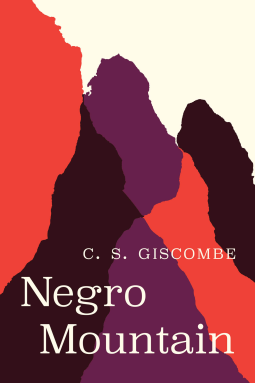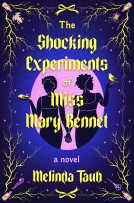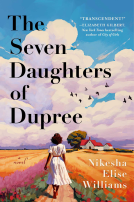
Negro Mountain
by C. S. Giscombe
This title was previously available on NetGalley and is now archived.
Send NetGalley books directly to your Kindle or Kindle app
1
To read on a Kindle or Kindle app, please add kindle@netgalley.com as an approved email address to receive files in your Amazon account. Click here for step-by-step instructions.
2
Also find your Kindle email address within your Amazon account, and enter it here.
Pub Date Oct 06 2023 | Archive Date Sep 01 2023
Talking about this book? Use #NegroMountain #NetGalley. More hashtag tips!
Description
In the final section of Negro Mountain, C. S. Giscombe writes, “Negro Mountain—the summit of which is the highest point in Pennsylvania—is a default, a way among others to think about the Commonwealth.” Named for an “incident” in which a Black man was killed while fighting on the side of white enslavers against Indigenous peoples in the eighteenth century, this mountain has a shadow presence throughout this collection; it appears, often indirectly, in accounts of visions, reimaginings of geography, testimonies about the “natural” world, and speculations and observations about race, sexuality, and monstrosity. These poems address location, but Giscombe—who worked for ten years in central Pennsylvania—understands location to be a practice, the continual “action of situating.”
The book weaves through the ranges of thinking that poetic voice itself might trouble. Addressing a gallery of figures, Giscombe probes their impurities and ambivalences as a way of examining what languages “count” or “don’t count” as poetry. Here, he finds that the idea of poetry is visionary, but also investigatory and exploratory.
Available Editions
| EDITION | Other Format |
| ISBN | 9780226829715 |
| PRICE | $18.00 (USD) |
| PAGES | 96 |
Available on NetGalley
Average rating from 4 members
Featured Reviews
 Reviewer 805047
Reviewer 805047
Negro Mountain is a sweeping and magical collection of cross-genre poetry that examines the history of the highest point in Pennsylvania, Negro Mountain. Negro Mountain is in the Allegheny Range of the eastern United States and spans the Pennsylvania-Maryland border and the Mason-Dixon Line.
Taking the reader back to the 18th century, this collection starts off with the retelling of dreams that describe an incident that occurred in the 1750s and has seen been a hot topic of controversy since the 1920s when the landscape was declared to be the highest point of land in Pennsylvania by the US Geological Survey.
I learned a lot of history reading this text while also savoring the use of language Ciscombe engages to describe the racially charged and violent history that haunts this land. There is a darkness in these poems that mirrors that shadow presence that exists over this mountain and C.S. Ciscombe does a phenomenal job of speaking to the reasons to why.
Thank you to the author and publisher for the e-arc copy!
The difficulty in reviewing <i>Negro Mountain</i> — with reviewing most poetry, really, a few outliers like John Donne being the exceptions — is that the processes and structures of poems are associative with brief intervals of linearity, whereas a review wants to be structured logically with brief intervals of associativeness. I found myself satisfyingly caught up in Giscombe’s preoccupations while also finding it difficult (impossible) to articulate what I think he’s getting at. Any step-by-step analysis struck me as potentially reductive: it wouldn’t come near to conveying the beauty of these poems. They have sharp edges. They build on one another, echo one another, call back to one another, elucidate one another.
So, a list.
1. Negro Mountain is a real place, “a long ridge of the Allegheny Mountains,” Wikipedia tells me, and the episode that slowly comes into clear view over the course of these poems really took place and really gave the mountain its name.
2. Nemisis (sic) or Goliath, a large African American man, was killed in a skirmish there, during the French and Indian Wars. He was fighting on the side of the whites. Who is “the dusky fellow at the roadside”?
3. Themes of the natural world being destroyed and returning — in dreams, possibly in reality as well.
4. Wolves. Wolves hybridizing with one another (red wolf, gray wolf), with coyotes, with dogs. Wolves in dreams. “ ... wolves came back. / (The dreams recur like days of a hot week.)”
5. Flight and escape. Capture. “Like many Negroes, I am interested in captivity and in the ideas of punishment and public sacrifice,” Giscombe writes, and in the same poem mentions “the STOP signs all down Liberty Road.”
Someone in these poems speaks of hurrying to make the boat to Canada. Insists on waiting for his sister.
An old white woman living on Negro Mountain can’t quite remember whether she really did see a wolf recently, but she clearly remembers a story about a Negro shot dead while running away from his owner. She speaks only to the poet’s white friend, who has accompanied him.
Have I made it clear that I mean to read this book again, and then again?
Thanks to the University of Chicago Press and NetGalley for the ARC.
 William F, Reviewer
William F, Reviewer
With the sensibility of a grizzled woodsman, solitary in a cabin, Giscombe looks at the mountain ranges of, and surrounding, the Allegheny Plateau and merges what appears to be biography, local history, geography and myths replete with symbolic animals. His jaguars loose in the mountains of Pennsylvania evoke the jungles of South America, written in a naturalistic style of an earlier century in a tone associated with Caribbean poetry. Wolves become werewolves, roaming as far as Mississippi. A series of poems, labeled as dreams, of a landscape turned dreamscape, has Freudian implications. A section of found poems, fragments taken from historical documents, disguised as notes, ponders the differing myths over decades as to how the Negro Mountain came to be named.
Taken as a narrative and not a collection of singular pieces, Giscombe’s book is a look at the past, viewed through several stylistic lenses, as a return to the modernism of Pound and Eliot, following trails cut by William Carlos Williams. His is an unapologetic traditional grandeur, an unflinching belief in what poetry once did poetry can still do. A book destined that rare find on some library bookshelf.
Thanks to NetGalley and the University of Chicago Press for an advanced copy
Readers who liked this book also liked:
Melinda Taub
General Fiction (Adult), New Adult, Sci Fi & Fantasy
Nikesha Elise Williams
General Fiction (Adult), Multicultural Interest
Kendra Allen
General Fiction (Adult), Multicultural Interest, Women's Fiction


















